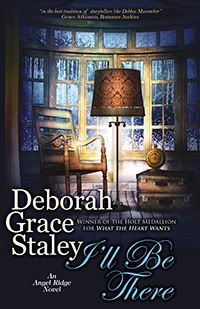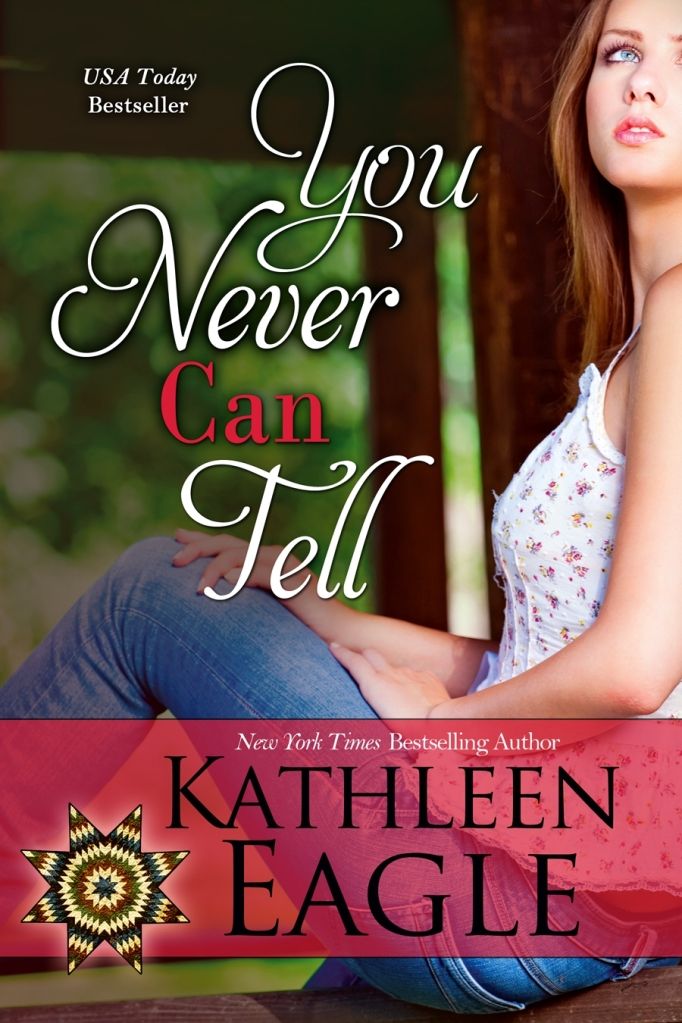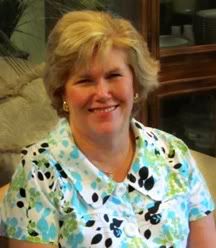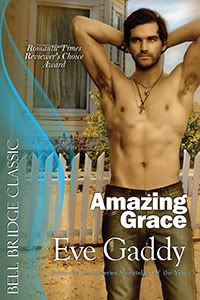 The Merry Month of May
The Merry Month of May
Deborah Grace Staley, Author of the Angel Ridge Series
www.deborahgracestaley.com
My publishing journey with Bell Bridge Books began five years ago, in the fifth month of the year, and this year, in September, will see the publication of my fifth novel in the Angel Ridge Series. Finding a home with this publisher was a miracle for me, and I love remembering how it all came about.
My road to publication was not easy. Rather, it was long and filled with many disappointments. I wrote four novels, targeting a major publisher of series romance novels. Choosing this path meant about twelve years of writing novels, submitting and waiting for a response. In my case, the response was typically, “Close, but not quite what we’re looking for.” Out of utter frustration, I decided to take a break and reassess by writing something just for me. Having recently moved into a circa 1867 farmhouse, the history of the home and the area had inspired me to create a small town on the Tennessee River in East Tennessee called Angel Ridge. The first story I wrote, Only You, was an 80-page short story. After sharing the story, my critique group encouraged me to expand it into something longer. Armed with a 180-page novella, I queried some publishers who all told me it was nice, but too short to publish as a stand-alone work.
Frustrated, but at the same time excited about the concept I’d created, I decided to go the non-traditional route and pitched to a new, non-traditional print on demand publishing house. They read Only You and made me an offer contingent on adding 100 pages to make the work novel length. I gladly accepted and adding the length was no problem at all. In fact, I’d call the process completely natural and right. My first novel finally in hand, I wrote and saw the second book in the series published, A Home for Christmas. That’s when things stalled and the excitement burned away, leaving an unworkable situation. The new publishing venture was not working out because there was not an effective way to market and distribute the books. Disillusioned, I decided that I would not write the rest of the series with this publisher. After putting out some queries, it seemed clear that no one would be interested in reissuing books that hand previously been published. I should write something else. The problem with that was that Angel Ridge would not leave me alone. It screamed for life in my head.
Through this entire journey, I had been able to work part-time, which gave me plenty of time to write. However, after my husband lost his job, I found that I had to go back to work full-time. So, I found a job and gave up on my dream of being a writer. I dropped out of my writer’s group and critique group and distanced myself from anything and anyone that reminded me of writing. Being near all of that only served to remind me of my unfulfilled dreams. These were difficult years during which my life began to fall apart.
After five years had passed, a friend suggested that I take advantage of free counseling available to me through work. Willing to do anything to feel better, I went to see a therapist. At my first appointment, the counselor had me telling her about myself. The subject of the books I’d published came up, but I moved on to other topics. She, however, kept steering me back to the subject of the books. I finally told her flatly that I didn’t want to talk about that, and besides, it was no longer a part of my life. At this point, she had something to tell me that I found quite startling. First, she said I was in a deep depression, which I denied. I grew up around family members with depression. I knew depression. I was not depressed . . . was I? The counselor then ticked off the markers of depression. I had them all.
While reeling from this realization, she then told me that if I wanted to get better, I would have to write again. I began to weep. Not just cry, but weep. The tears I’d held back for so long flowed from the wound I’d created in myself by not writing. Still, I told the counselor that I couldn’t write again. I could not put myself through wanting and hoping to publish only to see the dream be dashed over and over again. Despite my obvious pain, she restated that if I wanted to get better, I had to write again.
I went away promising to give it some thought and made an appointment to meet with the counselor again the next week. I cried all the way home. Hours later, to distract myself and hopefully stop crying, I opened my email. There, I found a message from the woman who had been my editor on my first Angel Ridge novels. I hadn’t heard from her in ages, but she had written to tell me that Belle Books was starting a new line, Bell Bridge books, and that they were looking for southern set novels. They were particularly interested in books that were part of a series. She strongly recommended that I query one of the Debs, i.e. Debra Dixon and Deborah Smith.
Okay, well, as it happened, I knew both of the Debs. I had met both Dixon and Smith through my local RWA chapter. I had in fact submitted the novella form of Only You to them previously, but the story had gotten a rejection. Still, could this be a sign from God that I needed to get back to writing or would this be a way to prove I had no business writing? Angry at this point, I had one of those conversations with God. I said, “Okay, God. I hear you. First the counselor and now this. Fine. I’ll send an email, they’ll say they aren’t interested, again, and I’ll then say, ‘See? I was right’.”
So, I wrote out an email and sent it off to Deb Dixon. I chose this Deb because she knew me better. The other Deb probably didn’t even remember me since our only previous interaction had been my scheduling her as a featured speaker at a conference years before. I got a response from DD right away. She said, something like, “Hey, yeah. Sounds good, but Deb Smith is doing all the editing. Send her a email and see what she thinks.” So, I did. I got a response right away. She did indeed remember me, and thought the books sounded good. She didn’t seem to mind that they’d been published before. I mean, honestly, only tens of people had read them after all! She asked me to send the first book to her as an attachment to an email, which I did that evening.
At this point, I’m still speaking to God as a rebellious child might. I’m thinking, she’ll read the book, say this is nice, but not what we’re looking for, and then I will go back to the counselor next week and happily say, “See? I told you I was not meant to write.”
Two days later, I got an email from Deb S. She said simply, “This looks good. Send me the other one.”
Which I did.
The NEXT DAY, she sent me an email making me an offer to reissue the two previously published books and for me to write one more. A three-book deal! If you’re following, it had been Tuesday I’d seen the therapist, and this was Saturday. I believe, at that point, God came right down into my living room and said, “See, you are a writer. I knew it all along, and really, so did you.”
Since then, my life has changed so much that I don’t even recognize it. I know that sounds corny, but it’s true. In five years, I’ve written five Angel Ridge novels, I went back to school and got an MFA in Creative Writing, that first book I wrote, after having not written in five years, won the HOLT Medallion for Single Title/Mainstream Fiction, the fifth book is coming out in September, and I’m excited about developing a new series set in the Southern Appalachian Mountains. Oh, and I now write full-time. I feel so blessed and happy to be able to do what I always dreamed of doing—writing books.
 To celebrate, I’m sharing all this love and appreciation with readers who have embraced Angel Ridge. Beginning in May, I will give away an autographed copy of each of the five Angel Ridge novels in order. The last will be the Fifth Angel Ridge novel, to be given away in September. And one lucky grand prize winner will receive a Kindle! All readers have to do to enter is “Like” my fan page on Facebook. To be entered to win more than once, simply tell a friend, and then the friend and the person who got them to like the Fan Page are both entered. Here’s the link: https://www.facebook.com/pages/Deborah-Grace-Staley/195201377182584
To celebrate, I’m sharing all this love and appreciation with readers who have embraced Angel Ridge. Beginning in May, I will give away an autographed copy of each of the five Angel Ridge novels in order. The last will be the Fifth Angel Ridge novel, to be given away in September. And one lucky grand prize winner will receive a Kindle! All readers have to do to enter is “Like” my fan page on Facebook. To be entered to win more than once, simply tell a friend, and then the friend and the person who got them to like the Fan Page are both entered. Here’s the link: https://www.facebook.com/pages/Deborah-Grace-Staley/195201377182584
I want to thank my editor, Deborah Smith, for being my own personal angel who made my publishing dreams come true. And I want to encourage anyone out there who has a dream that hasn’t yet come true, to never ever give up!

















 When I was three, the head of the children’s department in the Belk-Harry department store gave me a little red piano, a prop from one of the display cases—because she could see I loved it, and she was that kind of person. When I was twenty-three and a night nurse, I was taking care of a violent stroke patient, a woman no one else wanted to take care of. I saw a man standing just outside the doorway. I asked if he was family. He said no, but he’d known her a long time, and he could hardly bear to see her like that. She was, he said, the head of the children’s department at Belk-Harry’s for many years, and she was one of the kindest women he’d ever known. Me, too, I suddenly realized.
When I was three, the head of the children’s department in the Belk-Harry department store gave me a little red piano, a prop from one of the display cases—because she could see I loved it, and she was that kind of person. When I was twenty-three and a night nurse, I was taking care of a violent stroke patient, a woman no one else wanted to take care of. I saw a man standing just outside the doorway. I asked if he was family. He said no, but he’d known her a long time, and he could hardly bear to see her like that. She was, he said, the head of the children’s department at Belk-Harry’s for many years, and she was one of the kindest women he’d ever known. Me, too, I suddenly realized.









 remember very well. You see, my main character, Val Shapiro, had just been kicked out of the house by her parents and, since she’s part demon, she didn’t have any friends. I wanted to give her someone to pal around with who would understand the problems she faced, and since I love furry critters of the canine variety, I decided she needed a dog to befriend her. But not just any dog. I wanted her to have a special one she could talk to. One she could hold a conversation with–one who could talk back.
remember very well. You see, my main character, Val Shapiro, had just been kicked out of the house by her parents and, since she’s part demon, she didn’t have any friends. I wanted to give her someone to pal around with who would understand the problems she faced, and since I love furry critters of the canine variety, I decided she needed a dog to befriend her. But not just any dog. I wanted her to have a special one she could talk to. One she could hold a conversation with–one who could talk back. That’s how he got his name. Fang for…well, his fangs. I thought the idea was hilarious, but for some reason, people didn’t find the idea of cute puppies sucking blood appealing or amusing. And then there was the problem of him not being able to go out in the sunshine without turning into a crispy critter. Might be a tad difficult to work into daytime scenes. And Val killed vampires–how could I justify her friendship with one?
That’s how he got his name. Fang for…well, his fangs. I thought the idea was hilarious, but for some reason, people didn’t find the idea of cute puppies sucking blood appealing or amusing. And then there was the problem of him not being able to go out in the sunshine without turning into a crispy critter. Might be a tad difficult to work into daytime scenes. And Val killed vampires–how could I justify her friendship with one? use as a model for the dog part, he became part hellhound, part terrier mix, and all snark. The snark…well, that comes from me. You could say Fang is my inner smart ass.
use as a model for the dog part, he became part hellhound, part terrier mix, and all snark. The snark…well, that comes from me. You could say Fang is my inner smart ass. He’s become a fan favorite, so I decided to give him a girlfriend in the second book. That meant I had to create another part hellhound pooch, ’cause I didn’t want to stick him with just any dumb bitch, y’know. I wasn’t sure what kind of dog would appeal to him, but BelleBooks Office Manager, Pam Ireland, was a Fang fan, and mentioned her Cavalier King Charles Spaniel, Diva. An excellent match! So, Princess, Fang’s girlfriend, showed up on the page and ended up being as self-centered as her name.
He’s become a fan favorite, so I decided to give him a girlfriend in the second book. That meant I had to create another part hellhound pooch, ’cause I didn’t want to stick him with just any dumb bitch, y’know. I wasn’t sure what kind of dog would appeal to him, but BelleBooks Office Manager, Pam Ireland, was a Fang fan, and mentioned her Cavalier King Charles Spaniel, Diva. An excellent match! So, Princess, Fang’s girlfriend, showed up on the page and ended up being as self-centered as her name.
